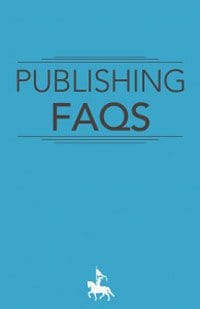Frequently asked questions. Every industry has them and publishing is no different. Ambassador International has the pleasure of working with many new and upcoming authors as well as already-established authors who still need our assistance. Many of these authors come to us with lots of questions. Publishing your first book (or your 10th!) is exciting! There are many details to work out and decisions to make. This Publishing FAQ series covers questions Ambassador International receives regularly. Previously covered questions are:
- What is the best publishing option for me?
- Do I need an agent?
- Will I experience success if I get my book into stores?
- What else do you expect me to do?
- How does a distributor work?
- Endorsements: The 6 Ws
 What is the best publishing option for me?
What is the best publishing option for me?
As an author this is a great questions to ask. It is an important question as it sets the tone and expectations for you and your book going forward. Before you decide what is best for you it is good to know what options are available to you and what they mean for you. To keep things simple lets look at the two most common routes to publication: Self Publishing and Traditional Publishing.
Self Publishing
Self publishing means the author takes the lead on all aspects of the project. Self publishing companies typically offer packages and services to help you along the way. I’ve seen packages range from a few hundred dollars to almost $25,000.
Packages can start with supplying the basics like an ISBN, cover design, interior layout and a few copies of the work through to robust editorial packages, promotional materials, websites and marketing. Very few of the self publishing houses are selling into national chains. Stores such as Barnes and Noble do not typically accept self-published titles except for special events or local author days.
Most of the big self-publishing houses will offer just about anything you can think for your book but when it is all said and done the success of your book when self published is 100% on you. I have talked to many self published authors and this is where they find the greatest challenge when they self publish — knowing what to do once they have the book.
I’ve found there are three common reasons why an author chooses to self publish:
- The author has tried to go the traditional publishing route but with no response or the process taking too long they decide to go ahead and self publish.
- It’s fast, can be easy and the price can be right.
- The author wants to maintain full control of every aspect of the process.
Traditional Publishing
For most authors working with a traditional publishing house is their first choice. A traditional publisher uses a royalty-based contract arrangement put in place between the author and the publisher. The publisher handles all aspects of the book from editorial through to print and marketing. However, a traditional publisher is selective in what they publish. They weigh out projects before they take them on — they access the demand and risk. If an author does not have an established platform or the makings of a platform it is usually pretty unlikely that a traditional publisher will offer an advance royalty contract.
Traditional publishers can have varying contracts in place so do not be discouraged to approach them even if you’re a first time author. The benefit of being with a traditional publisher is that you get their expertise and professionalism behind you and your book.
Now that we’ve looked at the two most popular options you can ask: How do I know what is best for me?
Really there is no wrong or right answer to this. But the decision you make may determine your future success as an author. To know what is best for you, you can ask yourself some questions and the answers should help guide you:
- What is your goal as an author?
- What type of book are you hoping to have published?
- Who is your target audience and how do you plan to reach them?
- How are you with marketing yourself and your book?
- Do you have an established platform?
If after answering these questions you come to the conclusion that your goal is to publish a memoir in the hopes that your kids are going to read it and you’re not overly into the idea of having to promote yourself or your book than a basic self publishing package would be the clear choice.
On the other hand if your goal is to grow as a writer, you have a plan for your books, a target audience in mind and a plan of how you’re going to make it work then you should seriously consider the traditional route. This does not mean that you’re guaranteed a traditional contract. You may find yourself self publishing or some other method to scale your fan base but I’d strongly encourage you to keep pursuing traditional publishing as you do this.
If you’re not sure and would like to talk to Ambassador International please make a submission and we’d be happy to connect with you.







